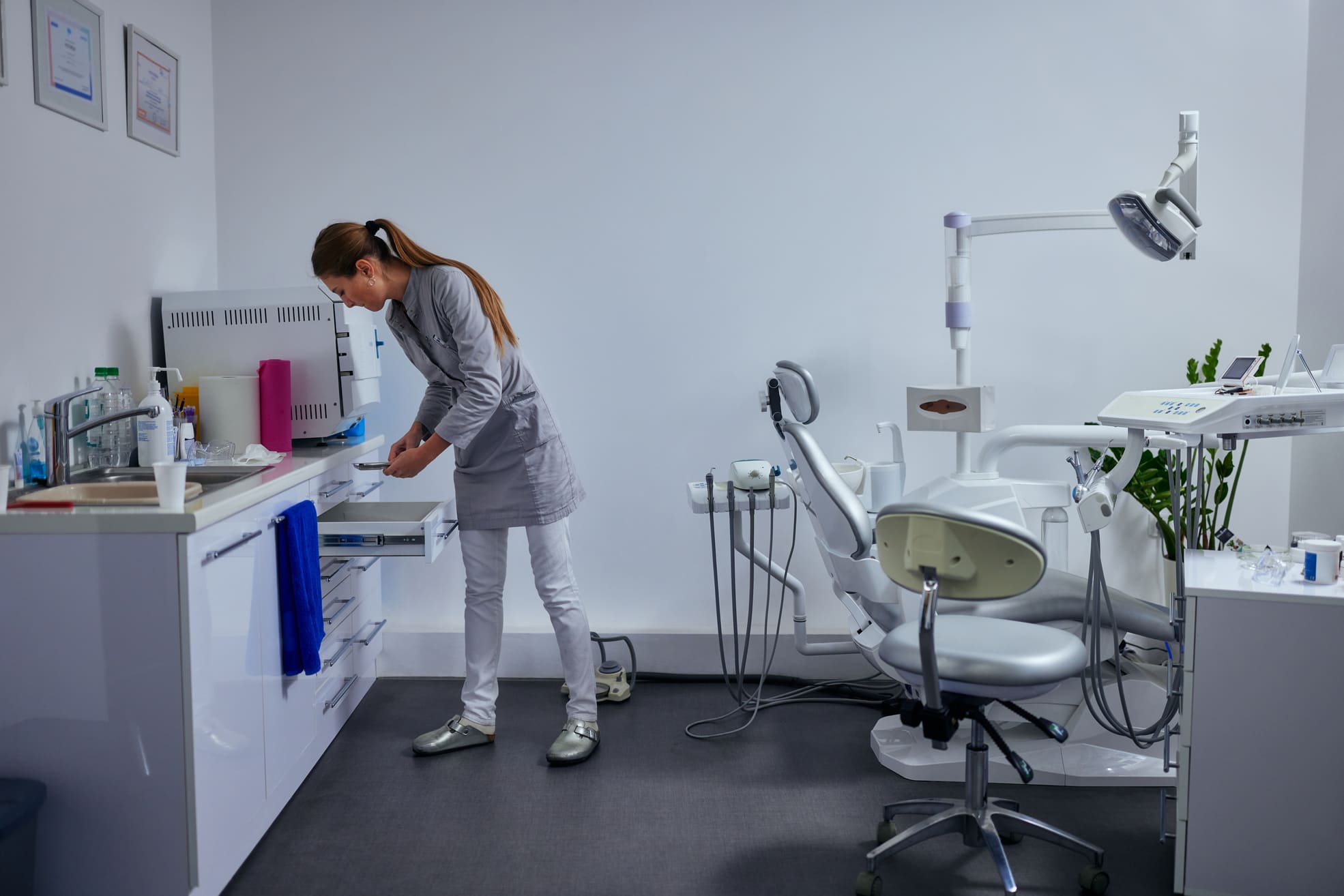Not all cleaning is created equal — especially in healthcare environments. For dental clinics, understanding the difference between basic and specialized cleaning is vital for maintaining a safe, compliant, and trustworthy space for patients and staff alike.
In a busy practice, it’s easy to assume that a quick surface wipe or a vacuumed floor is “enough.” But in reality, only specialized dental clinic cleaning addresses the health risks, regulations, and hygiene standards your practice is required to meet.
Whether you’re in Charlotte, NC or anywhere in the healthcare field, this guide helps clarify what sets specialized cleaning apart — and why your clinic needs it.
What Is Basic Cleaning?
Basic cleaning typically includes standard janitorial tasks such as:
- Sweeping and mopping floors
- Emptying trash bins
- Dusting desks and visible surfaces
- Wiping down bathrooms and mirrors
- Refilling soap and paper towel dispensers
This type of cleaning focuses on appearance, not necessarily sanitation. It’s suitable for regular offices or retail spaces but falls short in a clinical environment where microorganisms, bodily fluids, and cross-contamination risks are daily realities.
Basic cleaning teams often lack the training and tools to meet medical-grade standards — and may use products that aren’t approved for dental or healthcare settings.
What Is Specialized Dental Cleaning?
Specialized cleaning is designed specifically for medical and dental clinics. It includes everything in basic cleaning, but with added procedures, equipment, and safety protocols, such as:
- Use of EPA-registered hospital-grade disinfectants
- Disinfection of dental chairs, trays, lights, and tools
- Cross-contamination prevention through color-coded cloths
- Handling of biohazardous waste and sharps
- Infection control protocol compliance (OSHA, CDC, ADA)
- Cleaning of vents, air purifiers, and sterilization rooms
- Detailed record-keeping of cleaning tasks for inspections
In short, specialized cleaning isn’t just about looking clean — it’s about being safe.
Why Your Charlotte Dental Clinic Needs Specialized Cleaning
Charlotte is home to hundreds of dental practices, from solo offices to multi-location brands. In a competitive market, reputation and patient trust are everything. Choosing specialized cleaning shows your commitment to the highest standards of care.
Key reasons to invest in specialized cleaning:
- Prevents infections and reduces patient health risks
- Ensures compliance with health regulations and avoids penalties
- Enhances the perception of professionalism
- Reduces the risk of employee illness and sick days
- Keeps your practice inspection-ready at all times
Common Mistakes of Relying on Basic Cleaning Alone
- Overlooking high-touch areas like drawer handles and keyboard covers
- Using scented cleaners instead of hospital-grade disinfectants
- Failing to clean under equipment or hard-to-reach areas
- No logs or documentation to prove cleaning was done
- Using the same mop or cloth across different zones (clinical vs. restroom)
These oversights can have serious consequences — from patient complaints to failed inspections.
Partnering With the Right Team
At Commercial Cleaning Masters, we specialize in dental and medical-grade cleaning. Our trained professionals are equipped to handle:
- Nightly disinfecting routines
- Infection control support
- Ventilation and air quality cleaning
- HIPAA-conscious staff training
- On-demand emergency deep cleans
Whether your clinic is in Uptown Charlotte, Huntersville, or Gastonia, we’re ready to build a custom plan tailored to your practice.
Final Thoughts
If you’re running a dental practice, settling for basic cleaning simply isn’t enough. Your clinic deserves specialized care that protects your patients, your license, and your reputation.Trust Commercial Cleaning Masters — Charlotte’s go-to experts in dental clinic cleaning — to deliver the results your patients expect and your regulators require.

